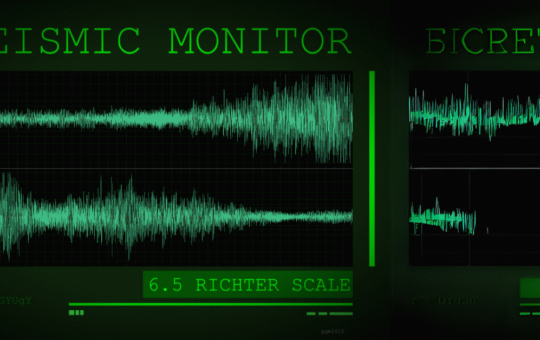
Level 5 Diploma in Petroleum Economics and Financial Modelling
- In-Depth Knowledge: Gain a deep understanding of petroleum economics, including market trends, pricing, and financial analysis.
- Practical Financial Modelling: Master financial modelling techniques used in the oil and gas industry to assess investments and projects.
- Career Development: Enhance your career prospects with expertise in financial decision-making and petroleum project evaluation.
- Industry Relevance: Understand the global petroleum market, investment strategies, and economic risk management.
- Advanced Analytical Skills: Develop critical thinking and analytical skills to assess the financial health of oil and gas projects.
- Analyze key economic principles relevant to the petroleum industry.
- Understand and apply financial modelling techniques to evaluate oil and gas projects.
- Assess the economic viability of petroleum projects, including cost analysis, revenue forecasting, and risk assessment.
- Evaluate global market dynamics, including pricing, supply, demand, and geopolitical factors that impact the petroleum sector.
- Develop and interpret financial reports and models for investment decision-making.
- Manage financial risks in petroleum operations and make strategic decisions to optimize financial returns.
- Introduction to Petroleum Economics
- Overview of the oil and gas industry’s economic principles.
- Global petroleum market dynamics, supply and demand, and pricing.
- Financial Modelling for Petroleum Projects
- Introduction to financial modelling techniques specific to the oil and gas sector.
- Discounted cash flow (DCF), net present value (NPV), internal rate of return (IRR), and other financial metrics.
- Project Valuation and Economic Analysis
- Methods to evaluate oil and gas projects based on projected revenue, costs, and investment.
- Sensitivity analysis and decision-making tools for petroleum project evaluation.
- Capital Investment and Financing
- Understanding capital budgeting and financial structuring of oil and gas projects.
- Sources of financing in the petroleum industry and risk assessment in financing decisions.
- Cost Estimation and Risk Management
- Estimating capital and operating costs for oil and gas projects.
- Identifying and managing financial risks in exploration, development, and production.
- Oil and Gas Pricing Mechanisms
- How crude oil pricing is determined, including futures markets, OPEC, and geopolitical influences.
- Pricing models for petroleum products and understanding price volatility.
- Economic Decision-Making in Petroleum Operations
- Evaluating the economic feasibility of exploration and production decisions.
- Analyzing the financial impact of strategic decisions such as mergers, acquisitions, and divestitures.
- Environmental and Regulatory Considerations
- The financial implications of environmental regulations and policies on petroleum projects.
- Understanding the costs of environmental compliance and sustainability initiatives.
- Global Market Trends and Geopolitical Factors
- Impact of global geopolitical events on oil prices and investment decisions.
- Forecasting and responding to market trends in the petroleum industry.
- Petroleum Economist
- Financial Analyst (Oil & Gas)
- Project Finance Manager
- Investment Analyst (Energy Sector)
- Risk Management Consultant
- Energy Consultant
- Comprehensive Curriculum: A complete blend of theory and practical application tailored to the petroleum industry.
- Industry Expertise: Learn from experienced professionals with years of industry-specific financial and economic knowledge.
- Hands-On Training: Engage in real-world case studies, financial modelling exercises, and investment analysis.
- Global Relevance: Aligns with global financial practices and industry trends, preparing you for an international career.
- Flexible Learning: Designed to accommodate working professionals and industry practitioners.
Study Units
- Introduction to Petroleum Economics
- Overview of the oil and gas industry’s economic principles.
- Global petroleum market dynamics, supply and demand, and pricing.
- Financial Modelling for Petroleum Projects
- Introduction to financial modelling techniques specific to the oil and gas sector.
- Discounted cash flow (DCF), net present value (NPV), internal rate of return (IRR), and other financial metrics.
- Project Valuation and Economic Analysis
- Methods to evaluate oil and gas projects based on projected revenue, costs, and investment.
- Sensitivity analysis and decision-making tools for petroleum project evaluation.
- Capital Investment and Financing
- Understanding capital budgeting and financial structuring of oil and gas projects.
- Sources of financing in the petroleum industry and risk assessment in financing decisions.
- Cost Estimation and Risk Management
- Estimating capital and operating costs for oil and gas projects.
- Identifying and managing financial risks in exploration, development, and production.
- Oil and Gas Pricing Mechanisms
- How crude oil pricing is determined, including futures markets, OPEC, and geopolitical influences.
- Pricing models for petroleum products and understanding price volatility.
- Economic Decision-Making in Petroleum Operations
- Evaluating the economic feasibility of exploration and production decisions.
- Analyzing the financial impact of strategic decisions such as mergers, acquisitions, and divestitures.
- Environmental and Regulatory Considerations
- The financial implications of environmental regulations and policies on petroleum projects.
- Understanding the costs of environmental compliance and sustainability initiatives.
- Global Market Trends and Geopolitical Factors
- Impact of global geopolitical events on oil prices and investment decisions.
- Forecasting and responding to market trends in the petroleum industry.
Upon completion of this diploma, learners will be able to:
- Analyze key economic principles relevant to the petroleum industry.
- Understand and apply financial modelling techniques to evaluate oil and gas projects.
- Assess the economic viability of petroleum projects, including cost analysis, revenue forecasting, and risk assessment.
- Evaluate global market dynamics, including pricing, supply, demand, and geopolitical factors that impact the petroleum sector.
- Develop and interpret financial reports and models for investment decision-making.
- Manage financial risks in petroleum operations and make strategic decisions to optimize financial returns.
The Level 5 Diploma in Petroleum Economics and Financial Modelling is tailored for professionals in the oil and gas sector who wish to specialize in the financial and economic evaluation of petroleum projects. This course is ideal for:
Petroleum Economists
Professionals who analyze market trends, pricing dynamics, and the economic viability of oil and gas projects, helping to shape investment strategies and optimize financial returns.
Financial Analysts in the Oil & Gas Sector
Individuals responsible for assessing the financial health of petroleum projects, applying financial modelling techniques, and making investment recommendations based on economic forecasts and risk assessments.
Project Finance Managers
Managers overseeing the financial aspects of petroleum projects, including budgeting, financing, and evaluating capital investment decisions in exploration, development, and production.
Investment Analysts (Energy Sector)
Analysts evaluating opportunities in the energy sector, focusing on petroleum assets, market trends, and financial models to drive investment strategies.
Risk Management Consultants
Experts in identifying and managing financial risks in oil and gas operations, advising organizations on how to minimize economic uncertainties and protect profitability in volatile markets.
Energy Consultants
Consultants working in the energy industry, helping companies navigate economic decisions, manage financial risks, and evaluate the financial viability of petroleum operations.
Oil & Gas Project Managers
Managers responsible for overseeing the financial and economic aspects of oil and gas projects, ensuring that financial decisions align with business objectives and market conditions.
Energy Economics Professionals
Individuals aiming to develop expertise in the economics of energy markets, including supply, demand, pricing, and the financial impacts of geopolitical factors on the petroleum industry.
Our assessment process is designed to ensure every learner achieves the required level of knowledge, skills, and understanding outlined in each course unit.
Purpose of Assessment
Assessment helps measure how well a learner has met the learning outcomes. It ensures consistency, quality, and fairness across all learners.
What Learners Need to Do
Learners must provide clear evidence that shows they have met all the learning outcomes and assessment criteria for each unit. This evidence can take different forms depending on the course and type of learning.
Types of Acceptable Evidence
Assignments, reports, or projects
Worksheets or written tasks
Portfolios of practical work
Answers to oral or written questions
Test or exam papers
Understanding the Structure
Learning outcomes explain what learners should know, understand, or be able to do.
Assessment criteria set the standard learners must meet to achieve each learning outcome.
Assessment Guidelines
All assessment must be authentic, current, and relevant to the unit.
Evidence must match each assessment criterion clearly.
Plagiarism or copied work is not accepted.
All learners must complete assessments within the given timelines.
Where applicable, assessments may be reviewed or verified by internal or external quality assurers.
Full learning outcomes and assessment criteria for each qualification are available from page 8 of the course handbook.
Top Courses
Related Courses
Let's Get in touch
Deleting Course Review
Course Access
This course is password protected. To access it please enter your password below:



